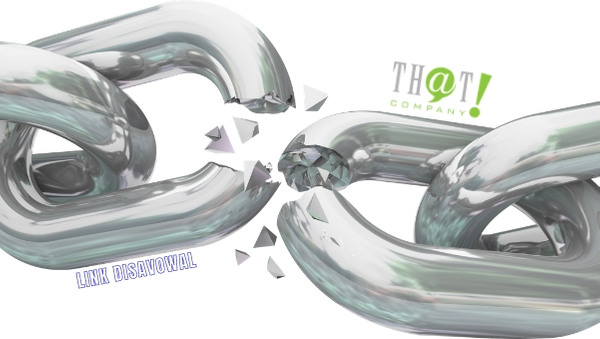 There are many different Search Engine Optimization (SEO) strategies that you can try for your website. We are going to cover just a few of the basic website SEO strategies. Primarily, you want to perform your due diligence in your keyword research. You want to make sure your website has clean navigation to make sure people can get around properly. On-page optimization of existing and future pages is key to enhancing your presence on search engines. You also want to make sure your content is of value. Lastly, you want to keep an eye on the links to your website so you can properly disavow any negative links.
There are many different Search Engine Optimization (SEO) strategies that you can try for your website. We are going to cover just a few of the basic website SEO strategies. Primarily, you want to perform your due diligence in your keyword research. You want to make sure your website has clean navigation to make sure people can get around properly. On-page optimization of existing and future pages is key to enhancing your presence on search engines. You also want to make sure your content is of value. Lastly, you want to keep an eye on the links to your website so you can properly disavow any negative links.
Basic Website SEO Strategies: It Begins with Keyword Research
 One of the most essential basic website SEO strategies requires you to do proper keyword research. There are several tools available that you can use to find what keywords might be best to work with. You want to make sure to probe deeply into different keywords, which might mean looking at competitor keywords to expand your keyword options. You might want to ask others how they search for something you offer.
One of the most essential basic website SEO strategies requires you to do proper keyword research. There are several tools available that you can use to find what keywords might be best to work with. You want to make sure to probe deeply into different keywords, which might mean looking at competitor keywords to expand your keyword options. You might want to ask others how they search for something you offer.
Be creative when looking for keywords, then, with proper research, you can determine what keywords would be most likely to capture the largest audience. Your research will also help to inform you of the difficulty of ranking specific keywords. It is best to find keywords that will take some time (a year+) as well as keywords that may represent “low hanging fruit.” The keywords that will take a while should receive your attention at the same time as the “easier” keywords. If you do not start working on the difficult keywords now, you will not achieve them later.
[bctt tweet=”If you are duplicating content found elsewhere, you are not going to get anything beneficial from that content…” username=”ThatCompanycom”]Clean Navigation
Good, clean website navigation is essential to a wonderful user experience. You might be wondering what this has to do with SEO, since this is more a subject of design. User experience is extremely vital to SEO, but it is also crucial for search engines to navigate a website to find the content you are creating.
For users, you want to have a clean and clear main menu that makes it easy for people to find the most essential pages on your site. These are the pages that frame exactly who you are or who your company is and what you offer. Traditionally, you will also include the About Us page and the Contact Us page, and you will want to make sure your Products and Services pages are dominant in your main menu.
In your blog or news section, or wherever you put your fresh content, you want to assure people visiting those pages can navigate to other related content, including featured content of the most popular topics. Good, clear website navigation will decrease your bounce rate, meaning people will be less likely to leave and immediately continue their search on some other website.
On-Page Optimization
 Check your home page title. Now, this is not your page header (H1), but the title that shows up in the name of the tab of your browser. Is it truncated? Does it include your main keywords? Does it read awkwardly? This is your home page, so if it has issues, you probably have issues elsewhere. Many tools enable you to audit your website to find the problems you may have overlooked. Your page titles are particularly important to clean up, but there are more hidden things such as your meta description, broken links, and images, duplicate content, etc. It is essential to good SEO that these issues are addressed. Now, I say addressed rather than fixed, because some things do not need to be fixed, but at least evaluated.
Check your home page title. Now, this is not your page header (H1), but the title that shows up in the name of the tab of your browser. Is it truncated? Does it include your main keywords? Does it read awkwardly? This is your home page, so if it has issues, you probably have issues elsewhere. Many tools enable you to audit your website to find the problems you may have overlooked. Your page titles are particularly important to clean up, but there are more hidden things such as your meta description, broken links, and images, duplicate content, etc. It is essential to good SEO that these issues are addressed. Now, I say addressed rather than fixed, because some things do not need to be fixed, but at least evaluated.
If your About Us or Contact Us pages have extremely basic website SEO strategies that include simple page titles and meta descriptions, that’s fine. You are not trying to rank these pages. You should fix broken things, even if that means removing them. Duplicate content can be fine if a page is designed in a particular way. For example, sometimes a page has limited content and it will appear as duplicate because of the framework of the site (menus, sidebars, footers, etc.). After evaluating and addressing the issues on your site, you will find that you have fixed issues that search engines were having with your site, and it will be reflected in your site’s rankings.
Content of Value
Everyone knows that adding content to your site can be beneficial, but it is slightly more complicated than that. There is a scale of how beneficial your content will be based on how original your content is. Of course, your site can experience adverse effects from content as well. If you are duplicating content found elsewhere, you are not going to get anything beneficial from that content, even if it is duplication on your own site.
This can be difficult if you sell items from manufacturers, and you want to use their descriptions or detailed information. It is important to find a way to put that information into your own words. If that is not possible, then you want to use a canonical tag directing to the original content. This tells Google that though you are duplicating content, you are not taking credit for it. This does mean that the page will not likely rank, which is why it is more important to adjust the words to make it unique to you. At least 70% of the content you have on any page should be unique.
If you are creating something new for your site, then create it with a fresh look and make sure your readability matches your audience. One of the last things you want to do is talk over or down to your desired audience. Have a few different people read your content to give you feedback if you are not sure. Make your content interesting for your readers and remember that not all content has to be blocks of text. Try to videos or infographics to help your audience understand what you offer or what makes you different from your competitors.
Link Disavowal
 You cannot help it when people add links to your website, so that means you need to check them regularly. If you start to see bad links popping up with some frequency, then you need to act. Google offers the ability to disavow links, meaning that you want Google to see the links as being something you do not like and, thus, disavow those links. Some tools will help you watch your backlinks and can help you spot those links that should be disavowed. Well known, yet one of the more overlooked among basic website SEO strategies, Google is getting better at not attributing bad links to a website that has no control over them. But, as with most website optimization, it is always better to be safe than sorry.
You cannot help it when people add links to your website, so that means you need to check them regularly. If you start to see bad links popping up with some frequency, then you need to act. Google offers the ability to disavow links, meaning that you want Google to see the links as being something you do not like and, thus, disavow those links. Some tools will help you watch your backlinks and can help you spot those links that should be disavowed. Well known, yet one of the more overlooked among basic website SEO strategies, Google is getting better at not attributing bad links to a website that has no control over them. But, as with most website optimization, it is always better to be safe than sorry.





























